Interview: Poet Tomas Q. Morin on 'A Larger Country'
|
|||||||||||||||||
|
The scholar John Rodden calls the literary interview a “fully-fledged genre.” I used to be skeptical, but after assigning my students at The College of Saint Rose to speak with an author, I’m more inclined to think the literary interview qualifies as a distinct form of performance. I put out a call on Facebook and Twitter: Would you speak to a college student about your book? I asked. Sure, they said. Review copies were sent, students selected authors, read and researched their work, and asked questions. - Daniel Nester, Contributing Word Editor |
POET TOMAS Q. MORIN ON ‘A LARGER COUNTRY’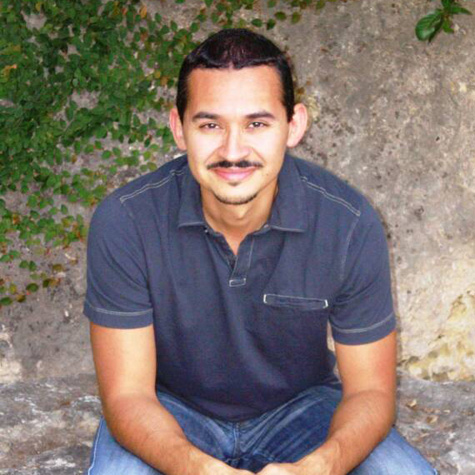 |
||||
INTERVIEWED BY
|
Tomás Q. Morin’s poems have appeared in New England Review, Boulevard, and Narrative. His first book, A Larger Country, was the winner of 2012 American Poetry Review / Honickman First Book Prize in Poetry. Tomás seemed excited to share not only about his new book, but also about himself and his career as a writer. Exchanging emails from his home in Texas, we discussed A Larger Country, as well as the business of being a poet. SEAMUS CUNNINGHAM: What would you like people to know about yourself? TOMAS MORIN: Thinking about what I would like people to know about myself is difficult, because I have no idea what someone might be interested in knowing. I mean, is there anyone that would care to know that I have a deep love for the blues of Son House, miniature donkeys, and Clint Eastwood’s orangutan movies? Or that I dislike mathematics, but admire the beauty of geometry, think that the fingerprints of God are in Pi, that parallel lines elegantly extending into infinity and never touching are as perfect as any two couplets by Pope? I have no idea if anyone would want to know any of this. CUNNINGHAM: I would sure like to know that! How did you hear about your book winning the APR / Honickman Book Prize? MORIN: I received a phone call in January from Elizabeth Scanlon of American Poetry Review. When she first introduced herself, I mistakenly thought that the call was about a poem they had accepted for publication. Then, I realized I didn’t have any poems submitted to APR at the time. Confusion on my part ensued. This all happened in the span of about two seconds, by the way, which explains why I was at a literal loss for words when she told me the reason for her call, to let me know I had won the prize. Trying to process my false assumption and then the unbelievable information she had just told me resulted in my not saying anything for a few seconds. It wasn’t until she asked if I was still on the line that I kind of snapped to and rejoined the conversation. She was very kind and patiently talked me back into coherence. CUNNINGHAM: What motivated you to write A Larger Country? MORIN: When I started out writing the poems in A Larger Country, I had no idea they would one day end up in the book. Honestly, I never knew this book would exist until it did. Even before I started my MFA program at Texas State University, I had fallen in love with not just making poems, but with the idea of a collection being more than just a selection of the best poems written over a certain number of years. William Carlos Williams and Yeats and Lorca were important models in this respect. While A Larger Country is my first published book, it’s not the first book I ever assembled. Counting my MFA thesis, I think there were three other books I put together. While they were awful and will thankfully never see the light of day, they were important because I was playing with the book as a form, and trying to learn my way around it in the way I played with the sestina and other forms. CUNNINGHAM: What do you think readers may take from your book? MORIN: Always first and foremost, I hope readers find pleasure in what I’ve written. Beyond that, if they find any sort of meaning or personal significance or maybe a different way of looking at the world, then that’s just icing on the cake. CUNNINGHAM: Have you done any public appearances for your books? How were those? MORIN: I had a launch party in Austin, TX, which was wonderful. It was great to see so many people from different parts of my life gathered in one place. I’ve also read in Houston and Minneapolis and at a festival recently. I found the crowds to be great at all the places I’ve read. Next year I’ll be doing a book tour of the West Coast with a couple of other debut poets, the fabulous James Arthur and Natalie Diaz. CUNNINGHAM: In your poem titled “Idiom of a Hero,” you write: “They represent, I fancy, a version of heaven; MORIN: Memory is a larger country than, say, the United States, or Italy, or any number of places because within our minds we can, through our experiences, create and archive whole worlds that far exceed the physical world in terms of size and variety. What’s more, the countries of our mind can be more permanent than the physical world, which is always in such a state of flux. This is good news. Before age and disease and time begin to challenge the permanence of the worlds in our memories, we can visit these places any time we want. I ask you, how could someone not consider this a type of heaven? CUNNINGHAM: What are some of the inspirations for the ideas? MORIN: I’m often inspired to write after reading a story about suffering or cruelty or injustice. Many times my poems are my way of trying to figure out how people can do treat each other as terrible [sic] as they do. Even though I know the answer—because we’re people—it’s a question I keep returning to. As a lifelong optimist, I still hold out hope for our species that we might one day evolve into a more decent, kind version of where we’re at right now. CUNNINGHAM: You have many interesting poems in your new book. Two I remember are “Our Prophet” and “Winter.” In these poems, what are the messages you wanted readers to take out of them? MORIN: There was no message I had for readers in those poems or any others. All I ever hope when I send a poem out in the world is that someone will like its music. That kind of pleasure is always first and foremost. Beyond that, if the poem makes someone reflect on themselves or the world, or key lime pie, then that’s icing on the cake. |
||||
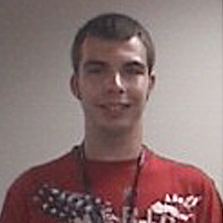 |
|||||
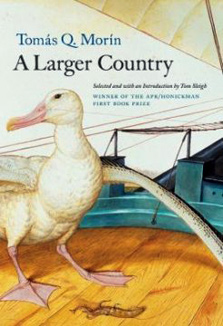 |
|||||
|
Visit Tomás Q. Morin… |
|||||










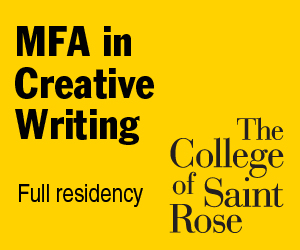
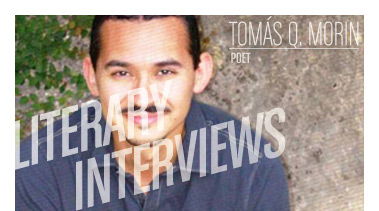
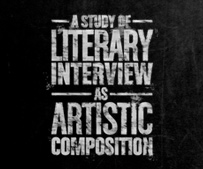














 Stated
Stated
Reader Comments